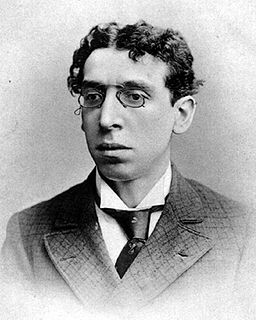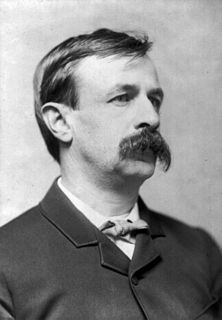A Quote by Thomas B. Macaulay
The desire of posthumous fame and the dread of posthumous reproach and execration are feelings from the influence of which scarcely any man is perfectly free, and which in many men are powerful and constant motives of action.
Related Quotes
When you come to analyze the love of money which was the general impulse to effort in your day, you find that the dread of want and desire of luxury was but one of several motives which the pursuit of money represented; the others, and with many the more influential, being desire of power, of social position, and reputation for ability and success.
The hostility perpetually exercised between one man and another, is caused by the desire of many for that which only few can possess. Every man would be rich, powerful, and famous; yet fame, power, and riches, are only the names of relative conditions, which imply the obscurity, dependence, and poverty of greater numbers.
In civilized communities, property as well as personal rights is an essential object of the laws, which encourage industry by securing the enjoyment of its fruits; that industry from which property results, and that enjoyment which consists not merely in its immediate use, but in its posthumous destination to objects of choice, and of kindred affection. In a just and free government, therefore, the rights both of property and of persons ought to be effectually guarded.
Posthumous fame is a plant of tardy growth, for our body must be the seed of it; or we may liken it to a torch, which nothing but the last spark of life can light up; or we may compare it to the trumpet of the archangel, for it is blown over the dead; but unlike that awful blast, it is of earth, not of heaven, and can neither rouse nor raise us.
Dominicus Corea had a posthumous son, Lewis Corea who became the Dissawe of Uva. Sir Paul Peiris wrote that `With the disappearance of Dominicus Corea, came a short lull in military operations of which the Portuguese officials availed themselves to give free rein to that rapacity which so frequently disgraced their careers in the East'. Dominicus Corea was succeeded by his brother Simon, as Dissawe of the Sat Korale, Kotte and Sitawaka.
What is required is the finding of that Immovable Point within one's self, which is not shaken by any of those tempests which the Buddhists call 'the eight karmic winds': 1-fear of pain, 2-desire for pleasure; 3-fear of loss; 4-desire for gain; 5-fear of blame, 6-desire for praise; 7-fear of disgrace; [and] 8-desire for fame.


































